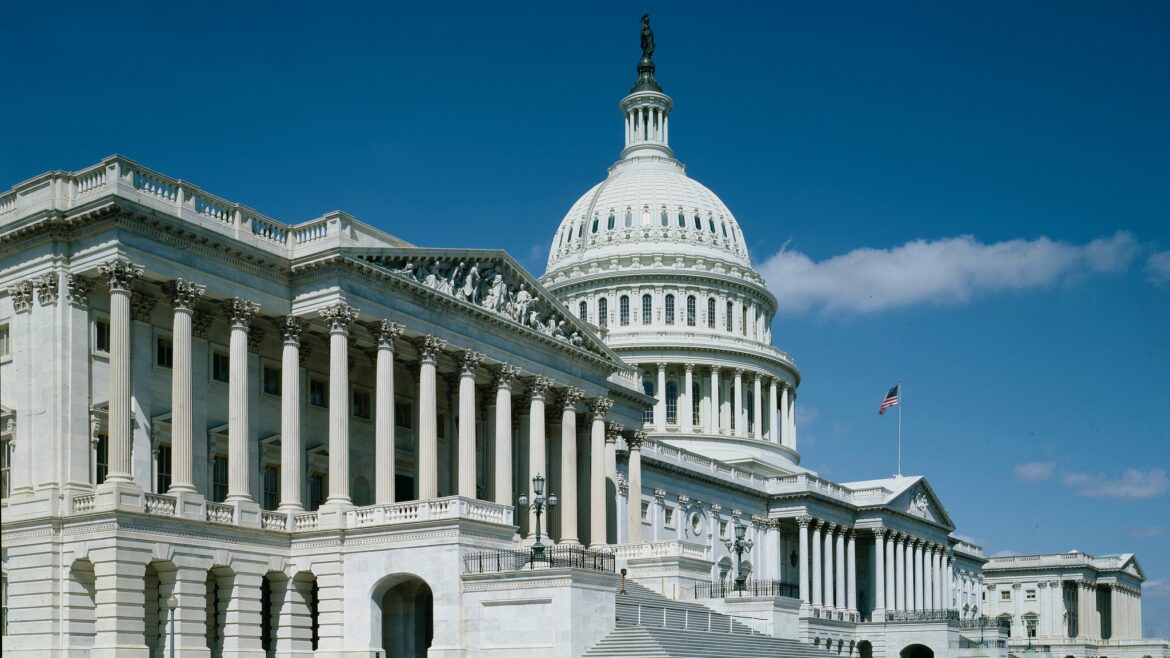House committee to investigate alleged NPR bias

Carol M. Highsmith / GPA Photo Archive
A U.S. House committee has requested an appearance by NPR CEO Katherine Maher at a hearing Wednesday as it opens an investigation into the network.
The Committee on Energy and Commerce will “investigate allegations of political and ideological bias at the national program producing office of National Public Radio (NPR),” according to a Tuesday letter to Maher signed by U.S. Reps. Cathy McMorris Rodgers (R-Wash.), Bob Latta (R-Ohio) and Morgan Griffith (R-Va.).
“The Committee has concerns about the direction in which NPR may be headed under past and present leadership,” the committee members wrote. “As a taxpayer funded, public radio organization, NPR should focus on fair and objective news reporting that both considers and reflects the views of the larger U.S. population and not just a niche audience.”
House Speaker Mike Johnson (R-La.) directed the members to conduct an investigation “in light of the recent, disturbing revelations,” he said in a press release.
The letter referenced the April 9 essay in The Free Press by former NPR editor Uri Berliner, who criticized the network for a liberal bias in reporting and a lack of ideological diversity among staff.
An NPR spokesperson declined to comment on the House committee’s letter or to confirm whether Maher would attend the hearing. NPR’s board is scheduled to hold an all-day strategic retreat Wednesday.
After the publication of Berliner’s essay, conservatives criticized Maher for remarks and posts on social media she had made prior to becoming CEO of NPR, including a post on X, formerly known as Twitter, in which she called Donald Trump a racist.
The House committee letter cited comments made by Maher, including during a 2021 360/Open Summit talk when she said the First Amendment makes it “tricky” to address the origins of “bad information.”
The committee members said in the letter to Maher that they are “concerned that your personal views and opinions on matters of public interest heavily influence your decision making at NPR and may cloud objective reporting of the news at NPR.”
The letter also asks Maher to provide responses to five questions by May 14:
- In the past five years, how many registered Republicans, Democrats, Independents, and registered voters who are not required by state law to declare an affiliation, has NPR employed as part of its news media staff?
- Were any internal written work products (e.g., memoranda, emails, etc.), including drafts, created relating to the lack of political viewpoint diversity at NPR? If so, please produce copies to the Committee.
- In the past five years, what percentage of NPR’s Board of Directors were registered Republicans?
- In the past five years, did members of NPR’s Board of Directors raise concerns about the lack of political viewpoint diversity at the station? If so, whom?
- In the past five years, what strategies, if any, did NPR implement to recruit individuals registered as Republicans or those who espouse non-left-leaning viewpoints (i.e., conservative or libertarian)?
Allegations of NPR’s political bias also drew the attention of Sen. Ted Cruz (R-Texas), who sent a letter to CPB CEO Patricia Harrison April 25 questioning CPB’s funding of the network.
“Given the serious allegations and the corroborating evidence presented, I urge the CPB to either implement corrective measures or reassess NPR’s funding,” Cruz wrote. “Should these significant issues remain unaddressed, I am prepared to pursue further action regarding distributing federal funds to the Corporation for Public Broadcasting, or other appropriate legislation.”
He added that Maher should be terminated immediately due to her “demonstrated history of partisan bias.”
Last year, Cruz questioned the constitutionality of a CPB diversity policy. He also wrote Harrison earlier this year about the availability of recordings of CPB board meetings.






Good reporting, Tyler. I hope that you or a colleague will follow up with a report on how the NPR board strategy session went.
Oh, it’s not chilling at all to be required to reveal your political affiliation when you’re not required by law to.
How about an NPR ongoing investigation into the unAmerican and anti-Constitutional reality that the House seems utterly unable to do anything outside of a strict partisan framework??? The founders did not think that Representatives were unable or prohibited from independent thought.
Any updates on this story?